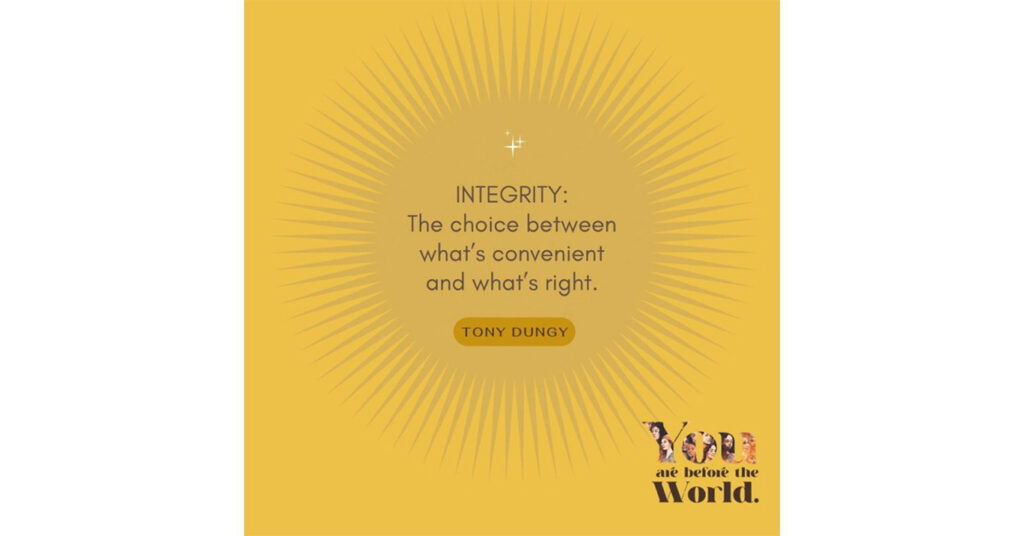A few days ago, my friend Keith texted me with a link to an AP article about the preliminary injunction blocking the administration from ending federal support for DEI programs. I’d seen it the day before in a post by David Glasgow, and shared it on my own page—noting the gap between anti-DEI law and corporate response to the law. So far, there’s considerable air between the two, but corporations are overcomplying, the way you might double the time to stop when following behind a car, or run from a fight to avoid getting hit. Better safe than sorry.
“I get it for those who have huge government contracts,” I replied to Keith. “They have no choice. They’re beholden to stockholders and no business can survive losing half its revenue. But companies who don’t have to do this and are obeying in advance?”
He shot back with one line: “Because this is what they wanted to do anyway.”
I didn’t want to believe that, but it resonated. I imagined all the corporate leaders who felt coerced into diversity, equity, and inclusion initiatives. Who reviewed the data and read the think pieces and felt that doing nothing would cause more conflict than doing something, so they threw us a few bones:
- A person or two responsible for thinking about the work.
- A relatively small budget.
- Agreement to “support” a set of actions that made some people feel really good and others feel not too bad.
Now that the tides are turning, it must seem as good a time as any to throw in the towel. So many towels are being thrown in that whatever negative media attention they might earn will be dispersed, and probably won’t last long, right? A classic risk benefit scenario.
The reality is this: when you never saw the work as an extension of your values, or you never believed in the business benefits—talent market advantage, more and differentiated ideas, company loyalty, a caring, connected, and collaborative workforce—the whole bolted-on effort is easy to discard.
There were harbingers of anti-DEI stickiness well before the election. A few years ago, I had a conversation over breakfast with a friend who was a president in a multi-billion-dollar technology company. In a moment of extreme frustration, she asked if I could help her understand the disconnect between her CEO’s expressed value for people and equality and his absolute resistance to legitimizing initiatives that might help employees succeed in more equitable ways.
“I don’t get it,” she huffed. “How can someone so successful not see that what he says matters and what he’s willing to prioritize don’t match!” She shared how this contrast made it hard for her to walk the company line. “I hate this kind of dissonance. I don’t agree with his position, and I feel disingenuous trying to explain to my team why we can’t do what our employees are asking for. If he doesn’t really care about people, he shouldn’t say he does.” She’d written him off as a fake.
I explained that while her CEO may value equality, he may simultaneously believe that equality already exists inside their workplace. And if he believes equality already exists, he won’t feel compelled to try to achieve it. To add dimension to the point, I shared that some who enjoy significant privilege are extraordinarily passionate about equity initiatives that benefit the poorest among us, but do not see their own employees–who may not be hungry or homeless or otherwise destitute–as needing the same added investment that might balance the scales in their relative environment. Aligning themselves with those they see as destitute soothes the conscience without threatening the position. No one who needs help with food or housing will get anywhere close to the throne.
After my brief exchange with Keith, I reflected on how hungry I was for the truth. If a company leader doesn’t believe diversity is a strength, or that fairness matters, or that including people from all walks of life enhances workplace culture and makes work not only more enjoyable, but more productive, I don’t want them to pretend they do. I want them to do us all a favor and roll back their promises. I want to know what they really value. And what they really believe.
People joke about meeting a “representative” when they first start dating someone new, meaning the person is on their best behavior and says all the right things. But when it comes time to show they care, to give something up—time, talent, energy, money—they backpedal.
While many companies have put on a good show, it’s now clear some had little to no intention of staying the course on issues of fairness and inclusion. That’s their prerogative, of course. Contrary to the administration’s posturing, private companies have a right to invest as they see fit. But as is true in all of my relationships, I’d like to know the real them: the promises they keep when there’s no praise to be had. The way they move when no one’s looking. The short-term gratification or convenience they’re willing to exchange for long-term value.
I’ve begun seeing diversity, equity, and inclusion rollbacks not as a bad thing but as a necessary reveal. If I only have so much time, talent, energy, and money, I want to spend it in in alignment with my values. This revelation is helping me by illuminating the companies whose leaders do care.
In my estimation, they are the ones risking something to put people first. They are standing on their values and moving with belief. They are staring down the fire and withstanding the heat alongside those who need them most.
We who understand what’s really at stake here will remember this moment, including those who stood before the world with us. And we will remain in community with them far beyond the chaos.
Tara Jaye Frank
